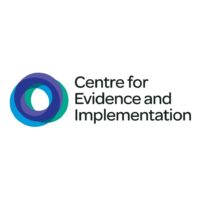This blog was written by Eleanor Ott and Jamie Rowland from the Centre for Evidence and Implementation, with contribution by Hillary Coker.
As researchers at the Centre for Evidence and Implementation (CEI), we find that each evaluation is its own unique puzzle, requiring an understanding of wider context, the intervention, implementation, and perceived impact. The pilot evaluation of the No Recourse Early Action Model (NOREAM) has been a particularly interesting evaluation to piece together. The model aims to prevent migrant families from experiencing destitution by assisting them to progress across key support domains relating to housing security, immigration status, income and employment, as well as health, care and wellbeing. NOREAM worked with families with precarious immigration status and “No Recourse to Public Funds” (NRPF) conditions which mean that they are ineligible for lots of other welfare services.
The intervention was locally focussed: aiming to improve families’ circumstances and promote migrant-aware practice across local authority provisions.The practice model was run from the local authority – with experts from immigration and housing – and in close collaboration with third sector organisations. The model was developed by social work academic Dr Andy Jolly at the University of Wolverhampton in collaboration with Hackney Council and emphasises fundamental ethical principles of social work. The early intervention model offered an opportunity to work with families in a more collaborative way before reaching a point of crisis and meeting statutory support thresholds.
The pilot evaluation allowed us to work closely with the intervention team to refine the theory of change, pilot measures in the complex situation of COVID-19, and look at targeted implementation outcomes and perceptions of change. The full report, which can be accessed here, documents our findings.
We wanted to highlight three reflections from the evaluation:
- Firstly, the levels of need of the 29 families served in the pilot were at times shocking. This raised lots of questions around thresholds for statutory support versus early intervention circumstances. Specifically, the evaluation suggested that the point at which local authorities are able to offer statutory support may be affected by the high level of need which must be met for statutory support provision, limited funding, and demand on services. some of those families would not realistically have met the threshold for statutory support without a programme like NOREAM.
- Secondly, the programme decided to offer small-scale unconditional cash grants to families. This was universally received as positive by families and the practitioners working with them. Parents and carers used these grants in a range of ways, including paying rent arrears to secure new housing, buying outfits for children’s work experience placements, and paying for school lunches. One mother described how she used funding to help pay off her debt so she would be less stressed in caring for her child: “I’ve got a debt at hospital, as well, that I’m paying – because I had a miscarriage, and because of my immigration status, I was charged. I’m paying that back.” The interviews held with families and practitioners showed that the programme was perceived to help families navigate support and improve outcomes in line with some of their goals.
- Thirdly, the evaluation evidenced a tension between the delivery aims of the programme and the wider policy environment. Specifically, the NRPF condition itself and waiting times for Home Office immigration decisions were found to be drivers of the needs of migrant families, pushing them towards housing insecurity and destitution while simultaneously providing barriers to social workers’ attempts to provide holistic support across the domains. Without a closer alignment between local authority delivery and central government policy, promising programmes will continue to face barriers to implementation and families seeking support from local services will continue to be pushed towards hardship.
As we were wrapping up the NOREAM evaluation report, CEI had the pleasure of hosting a Nuffield summer intern Hillary Coker who offered the following reflections on the report:
“I think the NOREAM report is quite an accurate representation of what our social care system looks like currently, particularly for migrant populations in the system and the lack of support they receive from local authorities. As someone who was under section 17 myself, it also enabled me to look at the social care system in a different perspective, through the eyes of researchers. Additionally, it highlights key issues such as distrust between migrants, the Home Office, and their local authorities, which previous research hasn’t looked at in as much detail.”
We hope that others who read the report also reflect on what the social care system looks like for migrant populations, considering ways to prevent destitution amongst migrant families and help those who reach this point to ensure no child goes hungry or is made homeless.


